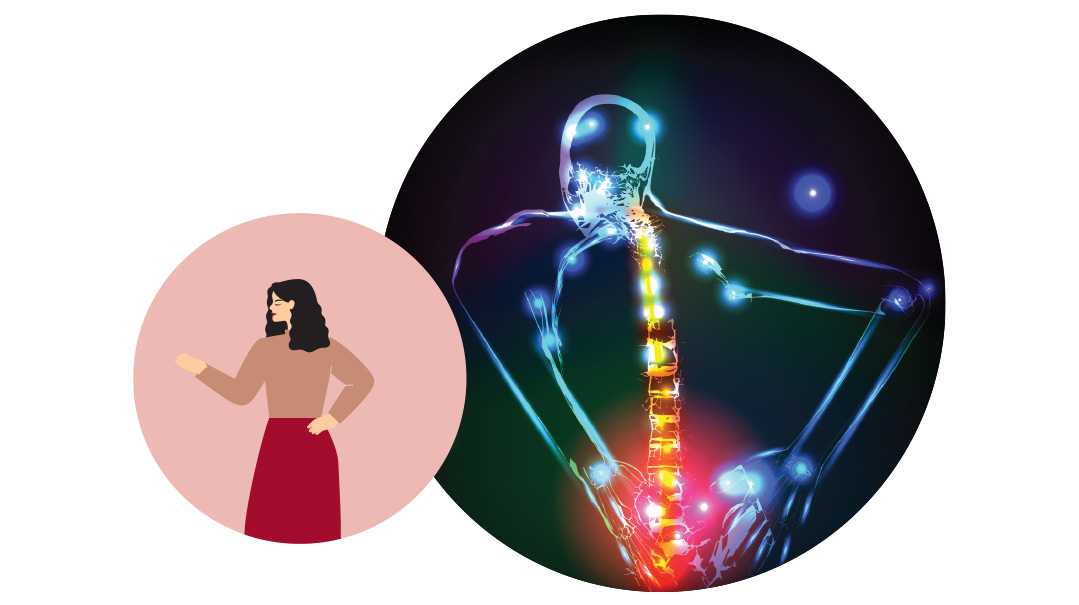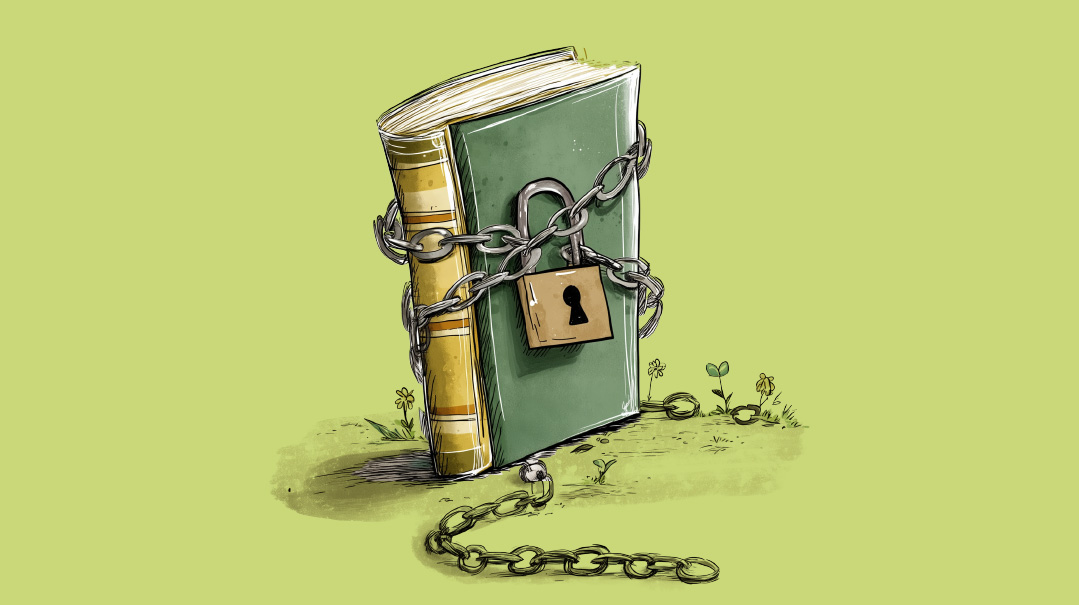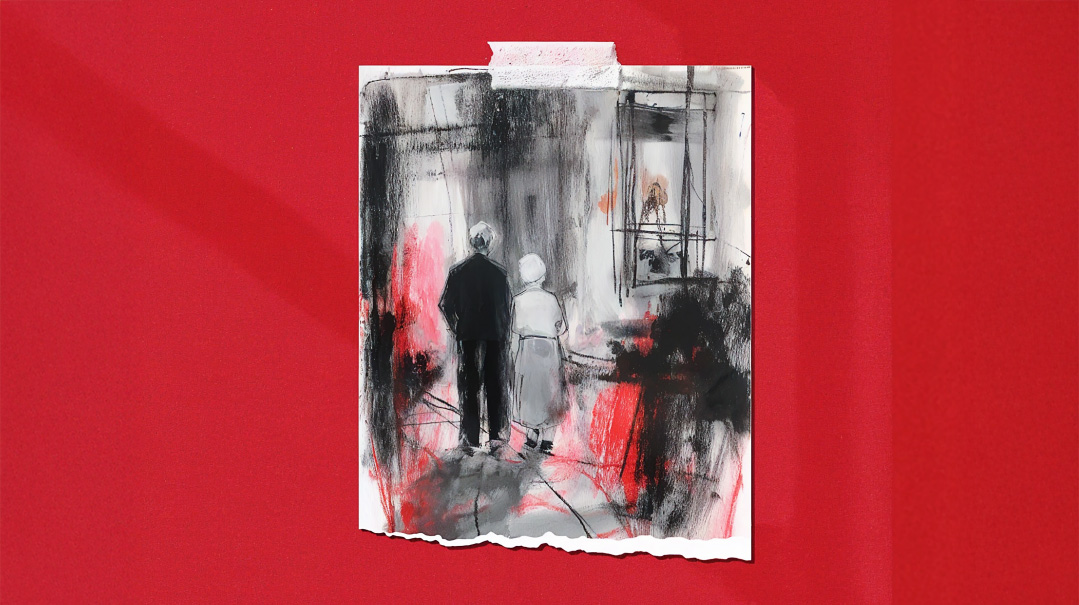Family First Inbox: Issue 848

“Why do some experience pain and others don’t? The jury is still out; easy-going family may be a part of the answer”

Listen to Your Gut [Stand By / Issue 846]
I’m so happy for Dassi that she had the courage to end her toxic relationship with Ari. I cringe to think how that marriage would have looked. Ari obviously put himself and his image before his kallah and future wife. There were so many red flags in Ari’s behavior; I’m glad that Dassi saw them before it was too late.
Girls, look out for difficult personality traits in the boy you are dating. If he has a history of bad relationships, is controlling or possessive, mocks you or others, stay away.
Most importantly, listen to your gut! If something feels off or wrong, speak to a mentor. If you’re not sure what is bothering you, find someone with chochmah and life experience to help you work it through. Hashem gave you feelings and intuition to help protect you from an unhealthy marriage. Don’t brush off your concerns.
Penina Eisenberger
Marriage and dating coach and educator
Breaking Away Isn’t the Answer [Inbox / Issue 846]
I was terribly saddened by the response of a daughter to her pained mother, which gave her mother (and us all) a glimpse into the daughter’s heart and explained the reason she cut off contact with her parent.
So many of us were raised by parents who, due to their own struggles or experiences, parented in a way that is today considered unacceptable or that at times caused us pain. There are parents who are overly critical, perfectionist, who in times of stress shamed or ridiculed their children. This undoubtedly leaves behind scars that as young adults we need to address. It’s very common that young adults, especially while forging their own way, see their parents’ flaws more clearly and are at a loss as to how to move forward.
I would like to know who these “therapists” are who instead of strengthening our young adults’ resilience and ability to have healthy relationships going forward, are sending them down a vicious and cowardly track of cutting off from their parents. I’ve seen how these young women vilify their parents, turning normative, albeit painful mistakes into unforgivable crimes, often erasing any goodness or joy they experienced in childhood from their memory.
How wonderful would it be if with the help of her therapist, this young woman could find a context for the things about her mother’s personality and parenting that she found so difficult. She could clarify what family means and what unconditional love is. If only she could learn that we can reframe situations and find a place to hold them, while not causing irreparable damage to everyone involved. If only she would work on herself to learn how to do things differently from her parents.
What does she expect her life to be going forward after making this kind of decision? Maybe her children will also cut off ties with her for being emotionally not present enough or too critical, having grown up in an atmosphere where there is no such thing as forgiveness and unconditional love?
Cutting off ties with parents is like amputating a limb. No one in their right mind would do that in order to avoid living with chronic pain in that limb. It would create at least an equally painful situation. No self-respecting doctor would suggest such a remedy, unless of course the painful limb was endangering life itself. The increasing popularity of ripping apart a family, leaving broken hearts and emotional disaster behind in order to have room to heal is scary.
I shudder when I wonder what will become of our future society, as parents and probably all family members become “divorceable” for their bad behavior and difficult personality traits.
Growing up with a difficult parent is a significant challenge that can follow us into adulthood. But for the sake of the future of all our families, let’s know that these are challenges that with support can be overcome in healthy ways that build love and connection instead of breaking apart families.
Anonymous
It’s Not One-Size-Fits-All [Feel Your Way Well / Issue 845]
I’m writing in response to your article Feel Your Way Well about the Dr. Sarno method. As a committed Dr. Sarno follower, I was happy to see his work getting well-deserved coverage. There’s no doubt that the Torah as well subscribes to “mind over matter,” or intellect over emotion, or being kovesh our yetzer, etc.
I used to joke with my physical therapist about being given my own chair with a name plaque in his waiting room because I was there so often. That was before I read Dr. Sarno.
I worked with a Sarno coach who had me doing visualization and tossing my feelings, past events, etc., into an abyss. That approach didn’t work for me, and I switched to someone else who encouraged me to journal. Journaling worked, and I was on my way to full recovery. Every so often I would need to do deeper journaling when the pain resurfaced, but I always knew that Sarno would do the trick.
People should be aware that if they’re going to follow Dr. Sarno’s method, it’s not a one-size-fits-all approach and that each individual may respond better to different ways of “purging” themselves of their subconscious.
A person should make sure to not only go to someone who is highly recommended but someone who makes them feel good about themselves. Some practitioners take a hard “boot camp” approach, criticizing a patient to try to exorcise their demons or their negative feelings. While this may work for some people, others may think this is the real approach and end up in worse shape than before. Therefore, please make sure to ask about the doctor’s bedside manner when researching.
The last and most important thing I’d like to point out is that sometimes surgery is unavoidable. The problem with these types of articles is that people can read them, and in their ignorance think that if they still have pain, they only need to journal more or do something different and the pain will get better on its own. Even Dr. Sarno would say that sometimes surgery is needed.
Two years ago, Erev Shabbos of July 4th weekend, I was rushed by Hatzalah to the local hospital because of debilitating back pain. It was so bad I had to journal standing up on Thursday night because I was in too much pain, and when I could not get out of bed Friday morning, I knew this was something much more than Sarno could cure. I spent Shabbos in the hospital and instead of eating Shalosh Seudos had an MRI, the results of which proved that I did need emergency neurosurgery. Afterward, I still questioned whether I could have gotten away without it and only succumbed to the temptation of surgery to get out of the pain. Now I realize it was necessary to have surgery and that it was foolish to think otherwise.
All these methods are different ways to heal our pain and our bodies. There’s a time for Dr. Sarno and a time for surgery or medical intervention. But as we all know, the ultimate refuah is only from Hashem. We just need to do our hishtadlus.
Rivkah Engelson
Kew Gardens Hills, NY
Positivity Breeds Positivity [Feel Your Way Well / Issue 845]
Kudos to Russy Tendler on an informative, well-written, and well- researched article. I appreciate the many gems she included.
As a Mind-Body Educator/“Sarno Coach,” I agree that it’s beautiful to see the development of self-awareness in addition to the physical healing. I’d like to point out another wonderful result of this healing journey — the increased capacity for positivity — both self and general positivity! When one stops to mindfully notice what it feels like to “physically feel good,” when one acknowledges triggers with kindness and understanding, it sends strong positive messages of “safety” to the brain. The more of these positivity messages we send to the brain, the more we enable it to stop being “on high alert” and constantly telling us we’re “in danger,” which leads us to our goal of being pain-free. Positivity adds a spring to our step, eases our tension, and helps us become more resilient!
Binah Schiff, RDCS.
Mind-Body Educator and Coach
Exercise Is the Key [Feel Your Way Well / Issue 845]
The recent article on the Sarno method put a heavy focus on the concept of mind-body connection without mentioning the therapeutic exercise necessary to address the pain completely. As a physical therapist, I’m constantly seeking to load my toolbox with as many evidence-based interventions as possible. I believe that most ideas have a core golden nugget that will impact the world. Sarno’s discovery of the mind-body connection is pure gold.
I always recommend Sarno’s books to my patients. I preface that they should rest assured I’m doing so totally lishmah, as he says not to exercise to relieve the pain, as this gives it attention and thus furthers the severity and duration of it.
The research since his time has gone completely the other way. It’s essential not to disregard the physiological aspects of pain. Trying to “Sarno” one’s way out of pain will most likely only provide temporary relief and allow the conditions to worsen. Pain serves as a signal, indicating that something “happened” in the body. It doesn’t indicate the seriousness of the signal. This is a vital distinction.
The article rightly emphasizes the significance of education as a long-term healing approach. However, the physical condition of an individual shouldn’t be ignored. Being physically unfit creates a favorable environment for experiencing such pain. For example, if someone with good core power and motor control lifts a box, the stress on the discs would be ameliorated, reducing the risk of a tear or bulge.
In my experience, men tend to experience these injuries before or after certain occasions, such as Succos, while women often face them before and after Pesach and Succos. Coupled with poor posture, engaging in long hours of hunching over dishes and cooking compromises an already weakened muscle system. Having the in-laws for Yom Tov only adds to the fun.
Why do some experience pain and others don’t? The jury is still out; easy-going family may be a part of the answer.
When any form of injury occurs, the initial focus should be on extinguishing the metaphorical fire. Research has shown that muscle contraction and stretching release what are called, “endogenous opiates,” internally produced painkillers. Eliciting this response requires improving strength, flexibility, and endurance. Once the acute phase is resolved, attention can shift toward addressing the underlying causes, which is where Sarno’s principles come into play. Understood simply: exercise will put out the fire, and Sarno’s methods will clear the smoke.
Daniel Yousefzadeh PT, DPT, CKTP
It’s a Chizuk [The Road Taken / Issue 844]
I have a tremendous amount of hakaras hatov to Malky Giniger for her piece she shared in the Shavuos issue. As a young, musically talented Bais Yaakov girl, it’s challenging to know how to use your talents in accordance with the ratzon Hashem. Thank you for continuing your battle in using your talents b’tzniyus. It’s a tremendous chizuk for the many of us who are surrounded by others using means of technology that we’re not comfortable with. It’s a tremendous comfort to know that others out there are doing the same, and that Hashem knows and notices our struggle to use our kochos He granted us properly.
T.R.
There’s More to It [Inbox / Issue 844]
I’d like to address two points that seem to bother the author of the inbox letter “Key Challenges,” regarding baalei teshuvahs' integration into our community. He says that many frum people consider baalei teshuvah second class and will not be meshadech with them, and that there is a “suffocating lack of space for individuality in our community.”
I hope this letter will add some clarity to a complex issue.
First, about the feeling of being looked upon as “second class,” which manifests itself especially in shidduchim. I can hear the pain involved behind it. But frum parents are very involved in the shidduch process of their children and feel a tremendous responsibility to do whatever possible to create an optimal future for their children. We are all aware of the many challenges every young couple faces even in the best circumstances, and as parents, we feel the obligation to minimize these challenges as much as possible. The fewer lifestyle changes, and the more familiar life is after marriage, the greater potential for success, especially since our children get married at a young age without much exposure to the outside world. That is why generally Sephardim prefer marrying Sephardim, Satmar chassidim usually marry within their own circles, and Litvish feel more comfortable marrying someone of Litvish background. It’s not a matter of looking at others as “second class,” it just makes the most sense.
The second issue I will try to clarify, although superficially because it’s a broad topic and overlaps the previous topic, is the matter of conformity. In the secular world, “individualism” is highly prized, but in the frum world it’s not. Yes, it’s conformity that is encouraged. Even in conformity, there’s plenty of room for individualism in a more subtle way.
It’s davka conformity that has given us the strength and protection to thrive in such a challenging galus. For example, when the Rambam came out with his holy seforim, there was tremendous opposition to a “new” way to present our Yahadus. When the chassidic movement began with a “new” way of serving Hashem, it met with severe opposition. It took many years for these changes to be integrated. The reason is because we’ve been super vigilant about the smallest changes to our mesorah, and rightfully suspicious of any innovations.
F. Blau
Monsey, NY
(Originally featured in Family First, Issue 848)
Oops! We could not locate your form.







